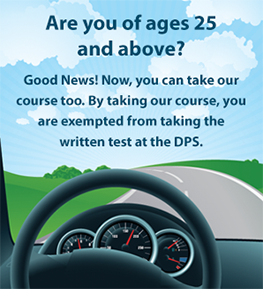

We never know when we might need emergency medical attention. After all, emergency means an event that you are not prepared for. But one should always try to be prepared for such emergencies, especially they have a medical condition that can affect the kind of care they need.

Having medical and emergency information for all 50 states is especially important for people who might have a chronic disease, allergies, heart diseases, or diabetes because the emergency might render them incapable of telling their problems to medical personnel tending afterwards. This lack of information might jeopardize your chances of being treated or saved.
Information That You Should Have
In case of an accident or other medical condition that you might face while driving, you should have important medical information about yourself and your loved ones who might be travelling with you, at hand. The information the paramedic might need depends on the kind of injuries that you have sustained or the cause of your illness. Since you can never foresee the kind injuries you might sustain, the more information you have about your medical conditions the better chances you have of being treated accurately. Following is a list of information that you should have in case of an emergency:
- You Complete Name but not your address or other personal information that might fall into the wrong hands.
- A small description of yourself including the following:
- Marks for identification or scars (if any)
- Color of your hair
- Color of your eyes
- Weight
- Height
- Age
This information will help the paramedics identify you in case your information gets separated from you at the time of the accident.
- Cell phone, work, and home numbers of the person the paramedics should contact in case of an emergency.
- The contact information of your doctor (if you have one).
- Your blood type.
- Details of any allergies, disease, or medical needs that might affect the treatment.
- List of medicines or other medication that you might take on a regular basis.
- Information of any recent shots that you might have had like tetanus or flu.
How to Ensure That the Paramedics Find This Information?
The answer to this question largely depends on where you keep this information. Following are some of the ways in which you can ensure that the paramedics can easily access this information in case of an emergency:
- Save it on your phone: If you carry a cell phone then this is the best place where you can save your emergency contacts. It is pretty simple; all you need to do is to save your next of kin’s number by the acronym ICE (in case of emergency). It is a widely understood acronym and your paramedics would know that this is the person they should be contacting. Some people also write ICE on their phone so that in case an accident occurs while driving the paramedics would know that their information is in their phones.
- In a travel guide: create a document with all your personal information on your computer and save it in a travel drive, thumb drive, personal drive, or a flash drive. Write ICE on your drive with a permanent marker or a sticker and attach it you are car keychain, or put it in your purse where the paramedics can find it easily.
Having your medical information with you, while driving, is very important. It will help your paramedics give you the right treatment necessary to treat you and save your life and that of your loved ones.


